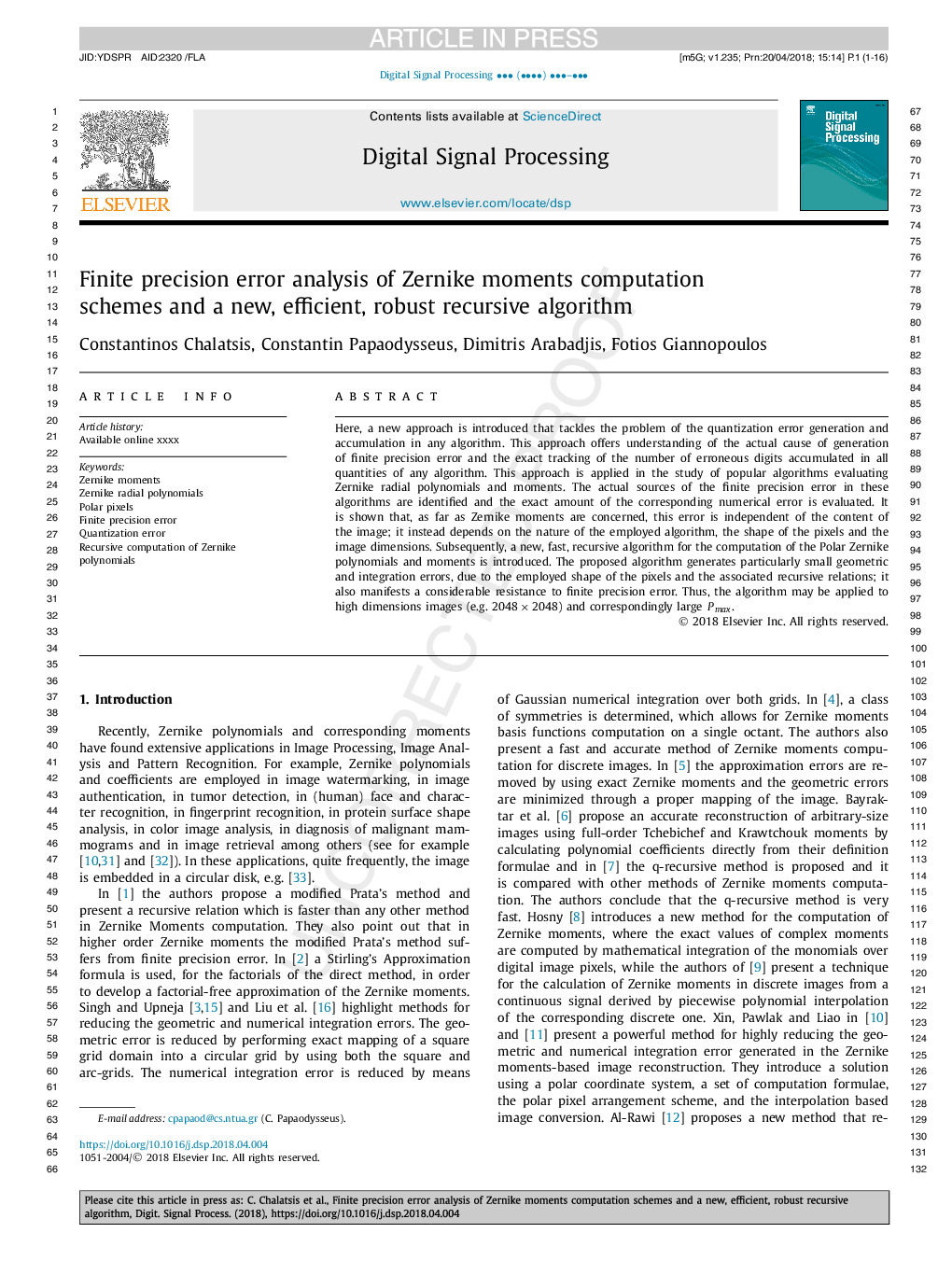| Article ID | Journal | Published Year | Pages | File Type |
|---|---|---|---|---|
| 6951676 | Digital Signal Processing | 2018 | 16 Pages |
Abstract
Here, a new approach is introduced that tackles the problem of the quantization error generation and accumulation in any algorithm. This approach offers understanding of the actual cause of generation of finite precision error and the exact tracking of the number of erroneous digits accumulated in all quantities of any algorithm. This approach is applied in the study of popular algorithms evaluating Zernike radial polynomials and moments. The actual sources of the finite precision error in these algorithms are identified and the exact amount of the corresponding numerical error is evaluated. It is shown that, as far as Zernike moments are concerned, this error is independent of the content of the image; it instead depends on the nature of the employed algorithm, the shape of the pixels and the image dimensions. Subsequently, a new, fast, recursive algorithm for the computation of the Polar Zernike polynomials and moments is introduced. The proposed algorithm generates particularly small geometric and integration errors, due to the employed shape of the pixels and the associated recursive relations; it also manifests a considerable resistance to finite precision error. Thus, the algorithm may be applied to high dimensions images (e.g. 2048Ã2048) and correspondingly large Pmax.
Keywords
Related Topics
Physical Sciences and Engineering
Computer Science
Signal Processing
Authors
Constantinos Chalatsis, Constantin Papaodysseus, Dimitris Arabadjis, Fotios Giannopoulos,
